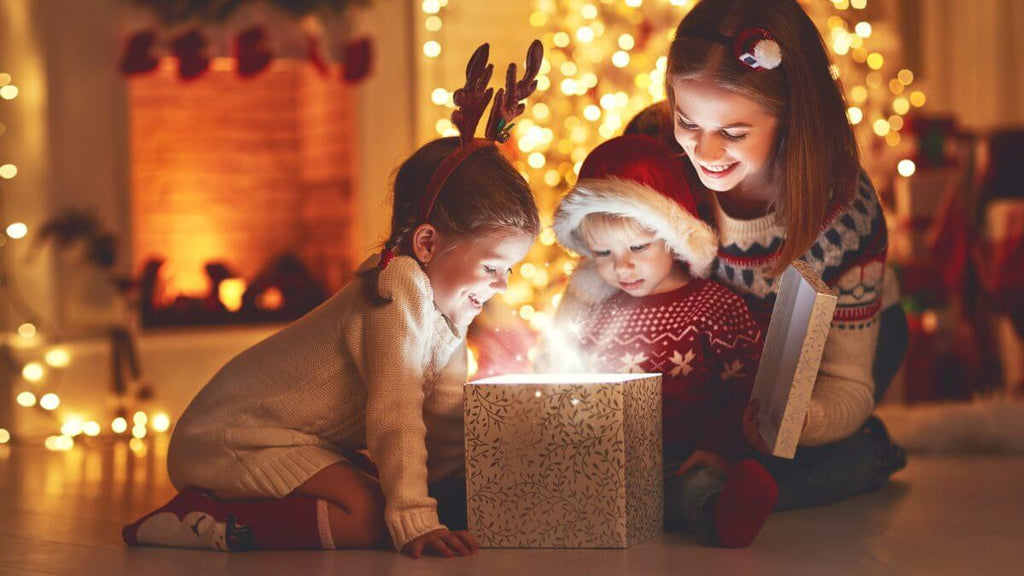There are enough reasons to practice social distancing and sanitary precautions during the COVID-19 pandemic but among them is a not-often-discussed one: holiday lice.
While commonly associated with children coming back from camp or school, the holidays are another “superspreader” event. Head lice have been around for thousands of years, so while the spread of lice dramatically decreased with the introduction of virtual classes, they still stuck around; unsurprisingly, with the universal return to in-person classes this fall came higher rates of lice transmission. As many people plan to host in-person gatherings this holiday season, we expect the louse to find its way to more heads—children and adults alike.
Preventing and curbing lice infestations can be simple enough though. As part of our holiday cheer, we have prepared a concise guide to prevent lice from infiltrating your holiday traditions.
Ask ahead if anyone has had head lice lately:
This is an important, yet difficult tip to follow. Lice stigma results in humiliation for children and even parents as misinformation has tied the presence of lice to bad hygiene. To clear the record, there is no established correlation between bad hygiene and lice; on the contrary, it has been found that lice prefer clean hair because it’s more grabbable. When families conceal lice infestations while maintaining close contact with unsuspecting people, this enables the critters to easily grab onto any strand of hair that comes its way. Ideally, adults can have these honest conversations about lice and coordinate responses with the goal of halting transmission as much as possible.
Avoid coming in direct contact as much as possible:
Head lice usually spreads through direct head-to-head contact. While advice that urges people to avoid sharing hats or brushes is important, it turns out to be a relatively minor concern. Thus, it’s more effective to be aware of whom you’re hugging or standing close to and how your hair is coming into contact with others.
Take preventative measures with your children:
It’s important that you have an honest, informed conversation with your children about lice. Emphasize the importance of minimizing direct head to head contact with other children, which is something they may already be used to due to the pandemic. If your child has long hair, style it in tight hairstyles such as buns or braids, or hats. It may also be worth warning children to not share winter apparel like hats, scarves, and jackets that come in contact with hair, as well as other accessories that touch hair like brushes, barrettes, and headbands. If they’re going to be sleeping over, pack their own pillows and sleeping bags.

Use lice prevention remedies:
In addition to regular head lice checks and combing, there are risk-free and gentle preventative treatments you can apply onto your family’s hair that repel lice and prevent infestation, especially if you suspect exposure. Our LiceLogic Lice Prevention Shampoo, Repel Conditioner, and Lice Spray to prevent and repel lice contains no pesticides and is gentle enough for daily use for anyone over two years old. Our lice prevention products are infused with natural essential oils and our proprietary blend of lice killing plant-based enzymes, named LiceZyme™. When all three lice-repelling products are used together, it has been shown they naturally repel lice by 99%.
Keep an open stream of communication with your family, friends, and community about lice:
Unfortunately, all of the above tips will have limited success if there is no transparent, shame-free communication about lice within your family, friends, and community. If a parent allows their blissfully unaware, lice-infested child to mingle with other children excited to play together, that is enough to subvert others’ efforts to stay lice-free. It’s worth a try to broach the head lice topic with other parents you will be seeing during the holiday to help prevent the next big lice outbreak and ensure all members remain lice free.
Further Reading
“Head Lice”, American Academy of Pediatrics, May 1 2015.
“Head Lice FAQs” Centers for Disease Control and Prevention, 2020. Rae Ellen Bichell,
“Head lice (nits)” Better Health Channel by the Department of Health, State Government of Victoria, Australia.
“Pandemic or no, kids are still getting — and spreading — head lice”, NPR, November 18, 2021.


Leave a comment